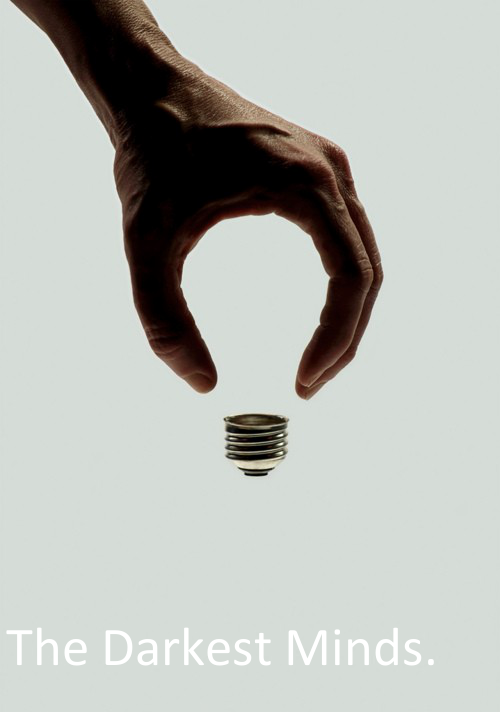“I had the strangest feeling, like I had lost something without ever really having it in the first place – that I wasn’t what I once was, and wasn’t at all what I was meant to be. The sensation made me feel hollow down to my bones.” – Alexandra Bracken’s The Darkest Minds
The Darkest Minds by Alexandra Bracken was, unsurprisingly, dark – and in a multitude of ways.
The book begins with the reader completely in the dark. There is little explanation of recent events, enough so that, even 50 pages into the book, I was still uncertain of its purpose, as well as several critical plot points. (For example: “Why are all of the adults so evil?” “What kind of government, or people, would put up with corruption like this?” And, “Who are the ‘good guys’?”)
Outside of this unfortunate vagueness, I actually enjoyed the book quite a bit. The plot, narrated in the voice of Ruby, the main character, is very personal, and, therefore, personally terrifying. The abuse of the unnaturally gifted is realistically portrayed in the lives of the children of a dystopian Earth, where a new virus has caused the majority of its children to die – or morph into something new, something more powerful than any human ever before.
These “Psi” children, in their evolution, have become outcasts from society, and reality as is known to the rest of the world. Sent away to camps where they are tyrannized, abused, and strictly prohibited from regular interaction with their peers, they slowly begin to either corrupt, or revolt.
But never escape. Escape is impossible from a prison world, one that labels you “broken,” “inconvenient,” and “dangerous.” Children band together to fight for normality, and eventually, control. But can such a conclusion ever be obtained?
For dystopian fiction, Bracken’s Darkest Minds is okay. But I would not go so far as to call it anything more than that. The language is very rough; not, I think, deserving the book’s prerequisite rating of readers 12 and older. And there is a notable lack of any redemption. By the end, I was left in a melancholy slump, hoping without success for some kind of light at the end of the tunnel.
The tunnel stayed dark.
For the older reader, The Darkest Minds is an interesting dystopian read, not in the ranks of Collins’ Hunger Games, per say, but certainly worth checking out of your local library for a quick holiday read.





